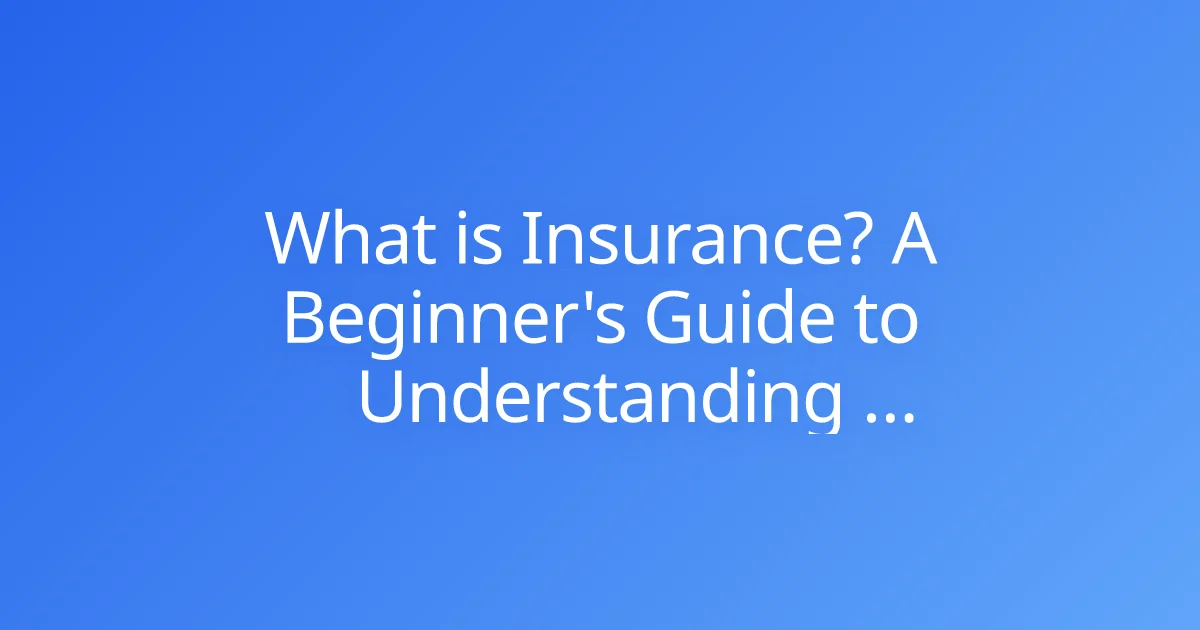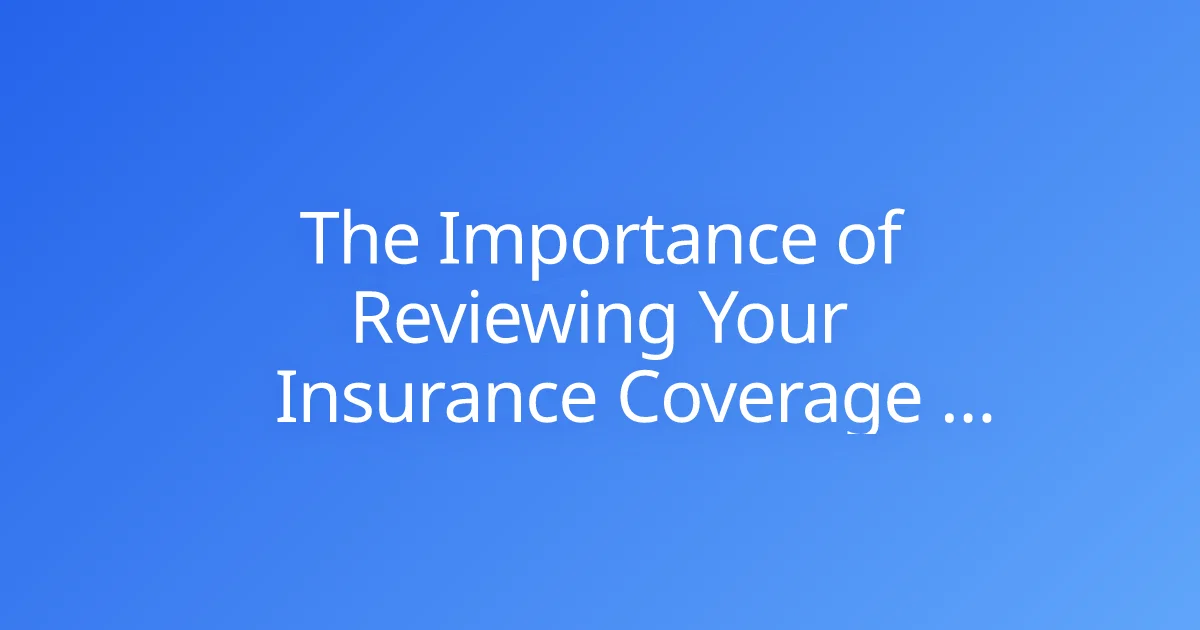Financial Planning
Explore our financial planning articles to learn everything you need to know.
What is Insurance? A Beginner's Guide to Understanding Coverage

Confused about insurance? This beginner's guide breaks down the core concepts of insurance, including premiums, deductibles, and how coverage truly works, to help you understand this essential financial protection.
The Importance of Reviewing Your Insurance Coverage Annually

Discover why reviewing your insurance coverage annually is crucial. Identify coverage gaps, unlock savings, and ensure your policies truly protect your evolving life.
How to Compare Insurance Quotes Like a Pro and Save Money

Learn how to compare insurance quotes effectively, identifying hidden value and ultimately saving money on your policies with expert strategies. Stop overpaying today!
Term Life vs. Whole Life Insurance: Which One is Right for You?

Unsure about life insurance? This guide clarifies Term Life vs. Whole Life Insurance, explaining key differences to help you choose the best policy for your financial future.
How Much Life Insurance Do You Actually Need? A Calculation Guide

Struggling to know your life insurance needs? This guide reveals how to calculate the right coverage using the DIME method, ensuring your loved ones’ financial security.
Can You Have Multiple Life Insurance Policies?

Yes, you can have multiple life insurance policies. Learn why stacking coverage is a smart financial strategy, how it works, and key considerations for maximizing your family's protection.
Long-Term Care Insurance: Planning for Future Healthcare Needs

Demystify Long-Term Care Insurance. Learn how this crucial policy helps plan for future healthcare needs, protects your assets, and ensures dignity in later life.
Related Categories
Stay Updated on Financial Planning
Get the latest financial planning articles delivered to your inbox.